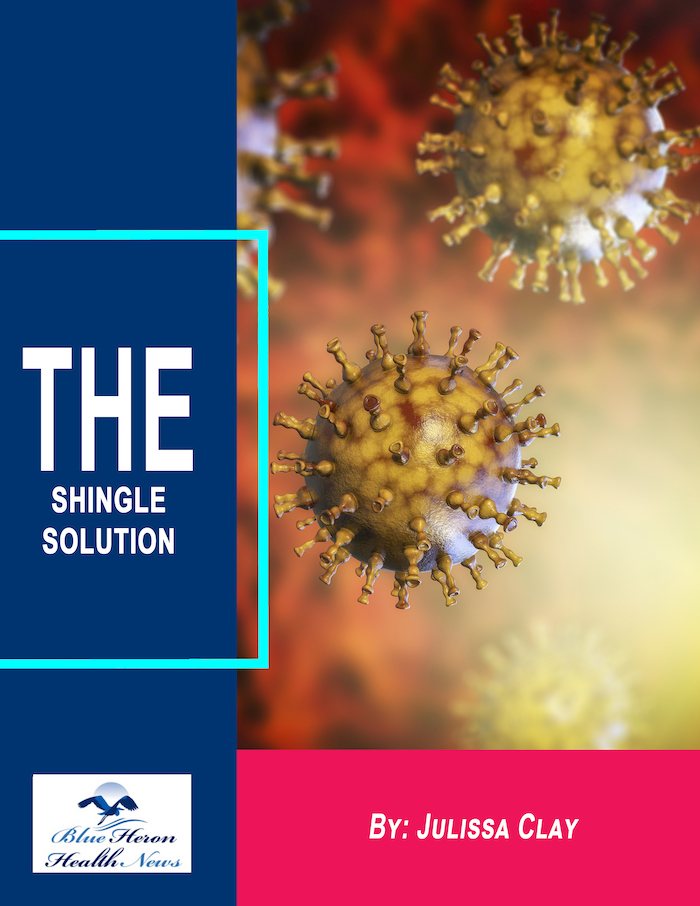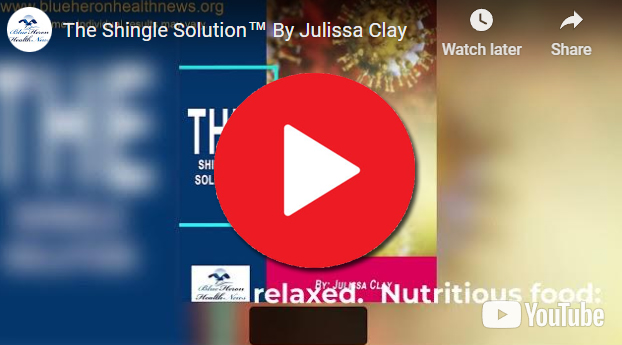
The Shingle Solution™ By Julissa Clay This eBook includes a program to treat the problem of shingle naturally. The author of this eBook, Julissa Clay, a practitioner in natural health, has killed the shingles causing virus completely to overcome the problem of PHN or Postherpetic neuralgia, one of the common complications caused by shingles. This program helps in melting PHN in a few weeks and make shingles a forgotten nightmare.
How can one manage shingles with heart disease?
Managing shingles (herpes zoster) with heart disease requires a careful, comprehensive approach due to the interactions between these conditions and the treatments involved. Shingles can cause significant pain, stress, and discomfort, which may exacerbate heart disease symptoms. Here’s how you can manage shingles effectively while minimizing risks to your heart health:
1. Consult with Your Healthcare Providers
- Coordinate Care: Work with both your cardiologist and your primary healthcare provider or dermatologist to create a care plan that considers both shingles and heart disease. They can help balance treatments, ensuring that medications for shingles won’t interfere with your heart medications or worsen heart symptoms.
- Medication Review: Ask your healthcare providers to review your current medications to avoid drug interactions between antiviral medications for shingles and heart medications like blood thinners, beta-blockers, or statins.
2. Use Antiviral Medications Early
- Why it helps: Early treatment with antivirals can shorten the duration of shingles, reduce pain, and lower the risk of complications like postherpetic neuralgia.
- Common antivirals:
- Acyclovir (Zovirax)
- Valacyclovir (Valtrex)
- Famciclovir (Famvir)
- Considerations with Heart Disease: These antiviral medications are generally safe for individuals with heart disease, but your doctor will need to ensure proper dosing, especially if you have impaired kidney function, which can affect how the body processes these drugs.
3. Manage Pain with Caution
- Pain Relief Options: Shingles can cause severe nerve pain, and it’s important to manage it while considering the potential impact on heart health.
- Topical Treatments: Lidocaine patches or capsaicin cream can help manage localized pain without systemic side effects that might affect the heart.
- Over-the-counter (OTC) Pain Medications: Acetaminophen (Tylenol) is typically safe for heart disease patients. However, non-steroidal anti-inflammatory drugs (NSAIDs) like ibuprofen or aspirin should be used cautiously, as they can increase the risk of heart attack or stroke, particularly in those with heart disease.
- Prescription Pain Medications: If OTC options are insufficient, your doctor may prescribe nerve pain medications like gabapentin or pregabalin. Be sure to check for any interactions with your heart medications.
- Avoid High-Dose Steroids: Corticosteroids may sometimes be used to reduce inflammation in shingles, but high doses can increase blood pressure, blood sugar, and stress on the heart. Your doctor will weigh the benefits and risks before prescribing them.
4. Manage Stress to Protect Your Heart
- Why it helps: Shingles and its symptoms can be stressful, which may exacerbate heart conditions by raising blood pressure and increasing the risk of heart attack.
- Stress Reduction Techniques:
- Deep Breathing and Meditation: Simple breathing exercises, mindfulness meditation, and guided relaxation can help reduce stress and lower blood pressure.
- Sleep Hygiene: Ensure adequate sleep, as fatigue and lack of rest can worsen both shingles symptoms and heart disease.
- Social Support: Talk to family or friends for emotional support, or consider joining a support group for individuals with shingles or chronic health conditions.
5. Monitor for Complications
- Shingles Complications: People with heart disease may have a higher risk of complications from shingles, such as postherpetic neuralgia (persistent nerve pain) or herpes zoster ophthalmicus (shingles near the eyes). Contact your doctor if you experience vision problems or persistent pain.
- Heart Health Monitoring: Keep an eye on your heart symptoms during a shingles outbreak, as the pain, stress, and medications may affect your heart condition. Watch for signs like:
- Chest pain or discomfort
- Shortness of breath
- Irregular heartbeats
- Swelling in the legs or ankles
- Fatigue or dizziness
6. Manage Shingles-Related Inflammation
- Why it helps: Shingles can cause significant inflammation, which might negatively impact heart health, as inflammation is associated with worsening cardiovascular conditions.
- Anti-Inflammatory Diet: Focus on an anti-inflammatory diet rich in fruits, vegetables, whole grains, lean proteins, and healthy fats (e.g., omega-3 fatty acids found in fish). This can help manage both shingles symptoms and reduce the risk of heart complications.
- Supplements: Omega-3 supplements may also help reduce inflammation but should only be taken after consulting your doctor.
7. Get the Shingles Vaccine
- Why it helps: The Shingrix vaccine is highly effective in preventing shingles and its complications, including postherpetic neuralgia. It’s particularly recommended for individuals over 50 and those with chronic conditions, including heart disease.
- Safety for Heart Disease Patients: Shingrix is generally safe for people with heart disease, but check with your doctor to ensure it’s appropriate for you, especially if you’ve had recent heart procedures or complications.
8. Maintain Heart-Healthy Habits
- Healthy Lifestyle: While managing shingles, it’s essential to continue focusing on your heart health.
- Regular Physical Activity: Engage in gentle physical activities (like walking or stretching) that don’t aggravate shingles pain or stress your heart.
- Avoid Smoking and Alcohol: These can worsen both heart disease and shingles symptoms.
- Monitor Blood Pressure and Cholesterol: Continue managing your heart disease through diet, exercise, and prescribed medications to avoid complications.
9. Stay Hydrated and Rest
- Hydration: Drink plenty of fluids to support your body in recovering from shingles, especially if you have heart disease, where dehydration can worsen symptoms like high blood pressure or arrhythmias.
- Rest: Shingles can cause fatigue, so make sure to get enough rest to aid recovery and reduce stress on your heart.
10. Follow Up Regularly with Your Doctor
- Regular Monitoring: Keep regular appointments with your healthcare provider to monitor both shingles recovery and heart health. Your doctor may adjust your medications or treatment plan based on how your body responds to shingles treatment.
- Post-Shingles Management: If you experience prolonged pain after shingles (postherpetic neuralgia), work with your healthcare team to find a pain management strategy that doesn’t interfere with your heart condition.
Conclusion
Managing shingles with heart disease involves a comprehensive approach that focuses on antiviral treatment, careful pain management, stress reduction, and ongoing monitoring of heart health. By working closely with your healthcare providers, maintaining a heart-healthy lifestyle, and using medications safely, you can effectively manage both conditions and minimize the risk of complications.

The Shingle Solution™ if you are suffering from shingles then The Shingle Solution can be the best program for you to relieve your pain and itching by using a natural remedy. It describes the ways to use this program so that you can feel the difference after using it as directed. This natural remedy for shingles can also help in boosting your immune system along with repairing your damaged nerves and relieve pain and itching caused by shingles